
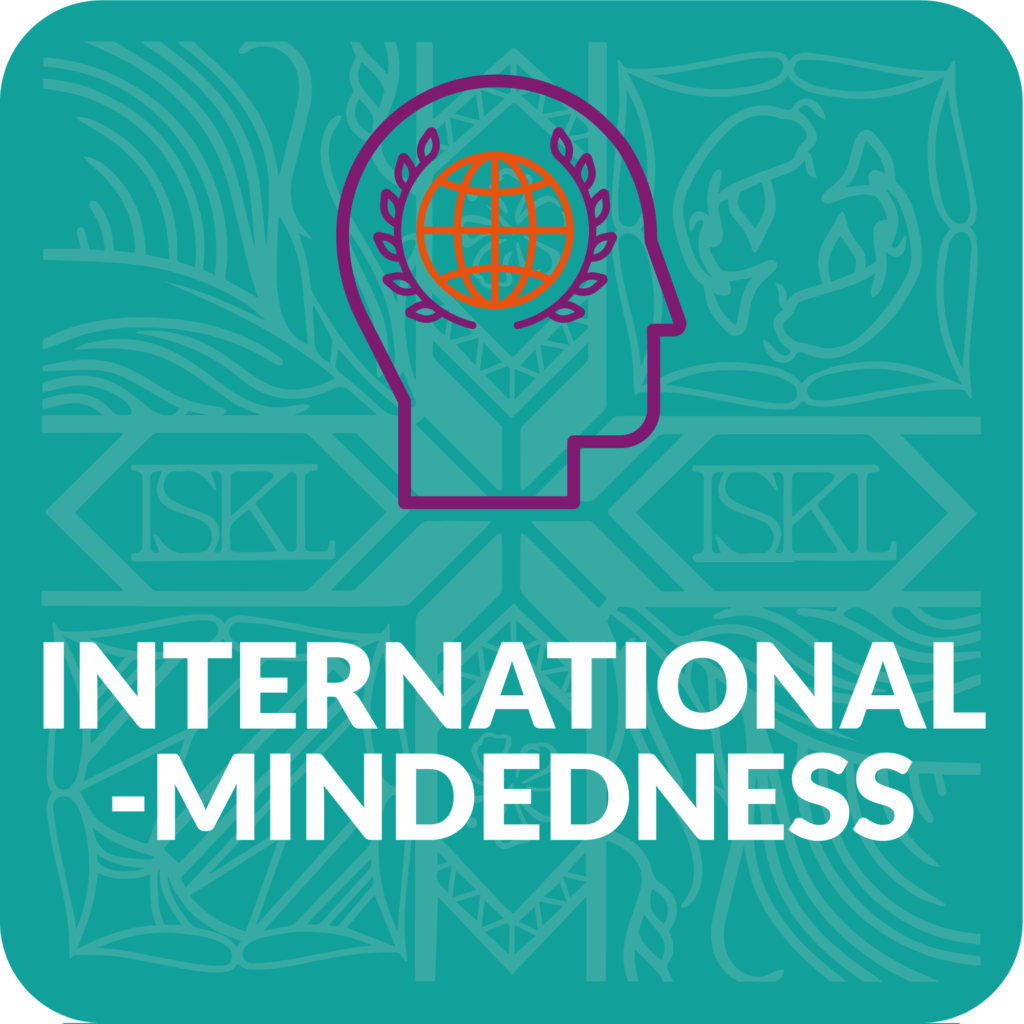
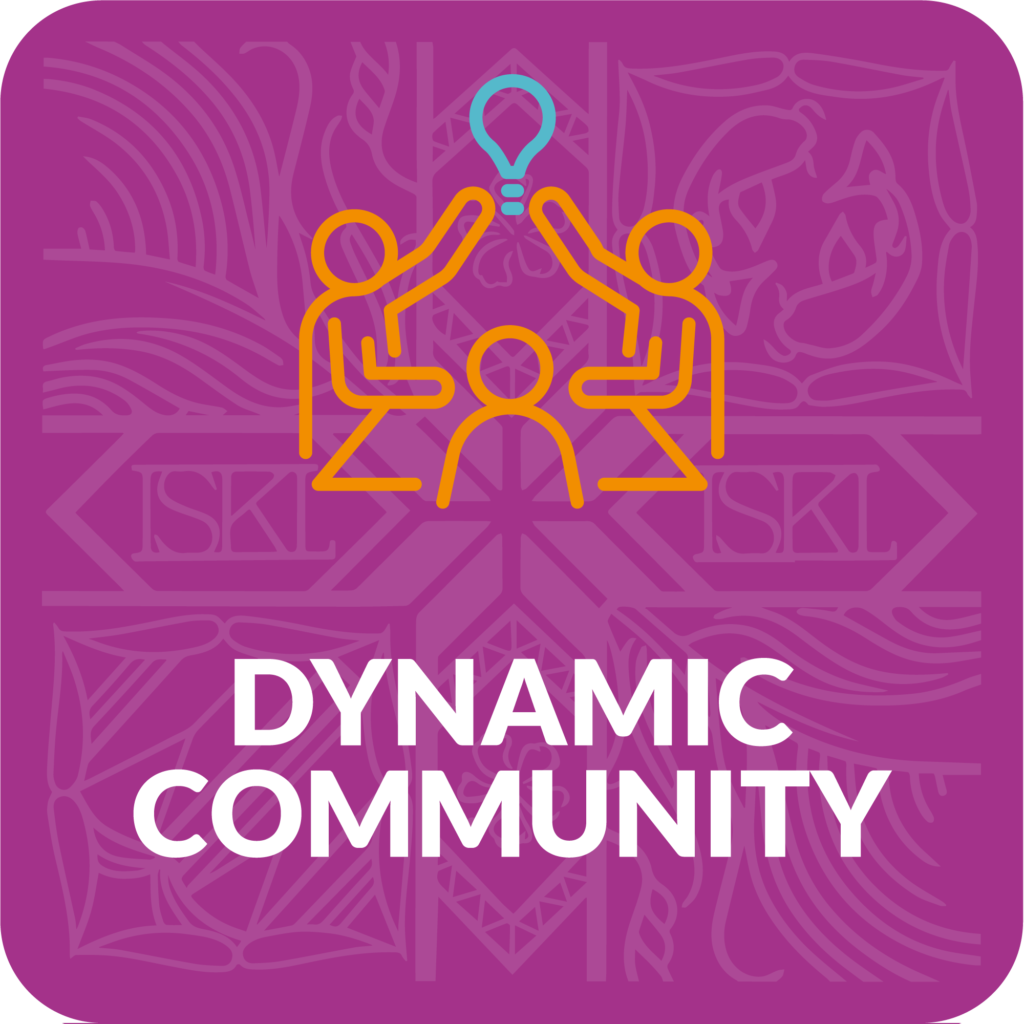 Recently I was given an opportunity to share my take on Diverse books with our faculty and staff. This allowed me to reflect on my reading life.
Recently I was given an opportunity to share my take on Diverse books with our faculty and staff. This allowed me to reflect on my reading life.
In Dr Bishop’s essay that was published 30 years ago titled ‘Windows, Mirrors and Sliding Glass Doors’, she explained how children see themselves in books and how they can also learn about the lives of others through literature. Books are ‘Windows’, allowing readers to become the third person looking in, ‘Mirrors’, allowing readers to see themselves in the characters of the story, and ‘Glass sliding doors’ allowing readers to change their perspectives in real life.
In ISKL’s libraries, we always seek to present books that represent our community. With the help of organisations such as ‘We need more Diverse books’, we have encountered many titles that represent diverse characters in a positive light. It is my mission to connect our readers with books that speak to them. I am in awe of the recent titles, made available by authors and publishers – I wish I had these when I was growing up.
Growing up in the 80s in Seoul, South Korea, I did not have access to public libraries or school libraries to wrap myself in colourful stories. Instead there was a district library not too far from where I lived – more like a reference library than a children’s library. The books we were recommended to read were mainly biographies and ‘classics’. Comic books that were of a fantastical nature were more readily available than the quality chapter books of today. There were more biographies of ‘foreign nationals’ or historical characters that did not really represent little kids like myself. Back then books were read to build knowledge and to inspire rather than for people like me to identify with.
When I was about 11 years old, my family hopped on a plane to move to a country that would give us better quality of life. In my head, I was picturing the fresh air, green grass and snow capped mountains of the Swiss Alps – Austria. But instead I landed in a country that was clearly missing the snow capped mountains and green hills – Australia. My first impression was a mixture of culture shock and heartbreak.
For a while reading books was out of the question as our shipping that carried my Korean books had not arrived yet and my English language was limited to ‘Hello my name is… ‘, ‘How are you?’ and ‘Fine, thank you, and you?’ Reading books in English was not possible at first. Perhaps I was too proud to reach into picture books to learn simpler stories. As I slowly gained confidence in English, opportunities to read started to open up. However, I was not finding books that grasped my attention. The language was foreign, the characters in the books were foreign, the plots were foreign. To me, everyone represented in those books was a foreigner.
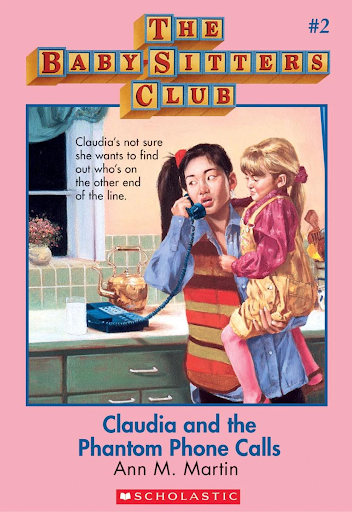 After trying a few unsuccessful attempts at reading English books, I came across a display shelf showing ‘The Babysitter’s Club’. On the cover was an Asian girl – I had the sudden urge to pick it up and read it. I was stoked to see someone who looked similar to me (with the hair and all) on the cover of a book. However, I could not connect with Claudia’s character. She was a fashionista, outgoing, responsible, and the vice president of ’The Babysitter’s Club’. She was everything I was not. Despite her looks, in my eyes she was still very ‘western’. She had none of the struggles of living with cultural differences or clashes that I was experiencing.
After trying a few unsuccessful attempts at reading English books, I came across a display shelf showing ‘The Babysitter’s Club’. On the cover was an Asian girl – I had the sudden urge to pick it up and read it. I was stoked to see someone who looked similar to me (with the hair and all) on the cover of a book. However, I could not connect with Claudia’s character. She was a fashionista, outgoing, responsible, and the vice president of ’The Babysitter’s Club’. She was everything I was not. Despite her looks, in my eyes she was still very ‘western’. She had none of the struggles of living with cultural differences or clashes that I was experiencing.
In some ways, instead of ‘Windows, Mirrors and Sliding Glass Doors’, books to me were ‘smoke and mirrors’, where I had to battle to peel off layers of meaning. Rarely I was successful and often I felt frustrated not being able to connect with books.
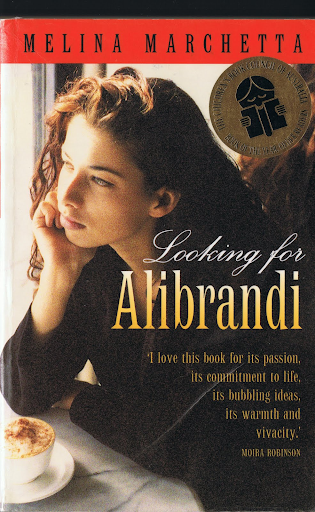 As I slowly understood the cultures of Australian society while maintaining my own, I began reading books of adventure, mystery and fantasy. But there were no books that made me feel understood. It was not until I was in high school, being made to read the book ‘Looking for Alibrandi’ where I got to see another immigrant family’s life. It was so refreshing. Sure the main character was a second generation Italian-Australian, and I was 1.5 generation Korean-Australian, and there were many qualities of Josie Alibrandi that did not represent me. However, one part where I had an ‘Aha!’ moment was when I was reading about Josie’s mother who was strong, passionate and loving. There were so many similarities between Josie’s mother and my own mother, obviously not an Italian but a strong and fearless mother. The book described Josie’s conflict having to navigate between two cultures, just like I was. It was fascinating for me to read about another family who were living in Australia but lived in different cultures. I really appreciated the minority culture being represented in the book. But I was still missing seeing characters who looked like me and had life experiences like me.
As I slowly understood the cultures of Australian society while maintaining my own, I began reading books of adventure, mystery and fantasy. But there were no books that made me feel understood. It was not until I was in high school, being made to read the book ‘Looking for Alibrandi’ where I got to see another immigrant family’s life. It was so refreshing. Sure the main character was a second generation Italian-Australian, and I was 1.5 generation Korean-Australian, and there were many qualities of Josie Alibrandi that did not represent me. However, one part where I had an ‘Aha!’ moment was when I was reading about Josie’s mother who was strong, passionate and loving. There were so many similarities between Josie’s mother and my own mother, obviously not an Italian but a strong and fearless mother. The book described Josie’s conflict having to navigate between two cultures, just like I was. It was fascinating for me to read about another family who were living in Australia but lived in different cultures. I really appreciated the minority culture being represented in the book. But I was still missing seeing characters who looked like me and had life experiences like me.
Fast forward many years and enter my nephew. He loved anything ‘Winnie the Pooh’ and ‘Thomas the Tank Engine’. He loved reading and I absolutely indulged in providing him with books that he loved. Then I came across a book called ‘Waiting for Mama’ written by Lee Tae-Jun. It was the first bilingual book where I absolutely loved the illustrations, not to mention the storyline. It was my nephew’s first time to see a book with a character who looked very much like himself. We read it over and over and over and over. I did not realise back then how powerful this moment was.
One of the picture books the ES library has acquired is called ‘My two blankets’. As soon as I read the first page, it tugged my heartstrings. As I read on, I felt …. relieved. Through the author’s words, I felt understood. Even after 30 years since moving to Australia, that sense of being understood, being represented, really made an impact on me.
More recently, another book caught my eye; ‘Stand Up Yumi Chang’ by Jessica Kim. As I was reading this book, I laughed and cried over the sentiments of Yumi. Feeling trapped between family expectations and who she wanted to be, I felt as if the author had hidden herself in my house while I was growing up, taking notes, and had marinated those notes into her story. I appreciated how this author had presented my world through another character.
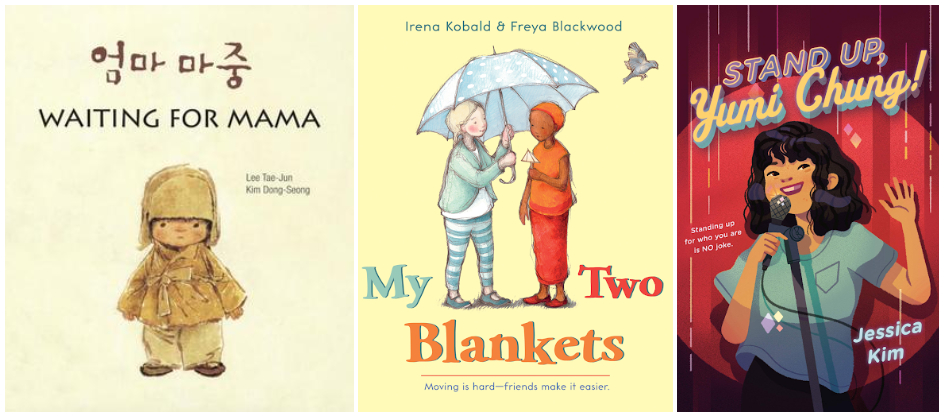
Just as Anna James said in ‘The Bookwanderers’, I would love our readers to have that similar feeling of being seen, being heard, being recognized and being understood through stories. As adults, I believe it is our role to provide opportunities for our readers to really see themselves through books, and to model the pleasure of reading.

Bibliography:
Bishop, Rudine Simmons. “Windows, Mirrors and Sliding Glass Doors”, Perspectives: Choosing and using books for the classroom, Vol. 6, No.3, Summer 1990
James, Anna. Pages&Co: The Bookwanderers, New York, Penguin Random House LLC, 2019
Kim, Jessica. Stand Up Yumi Chung, New York, Kokila, 2020
Kobald, Irena. My Two Blankets, Boston, Houghton Mifflin Harcourt, 2014
Marcetta, Malina. Looking for Alibrandi, Sydney, Puffin, 1992
Martin, A. M. The Babysitters Club: Claudia and the Phantom Phone Calls, London, Scholastic, 1988
Yi, Taejun. Waiting for Mama, New York, Ragged Bears, 2007
Catherine Bae is the Elementary Teacher-Librarian at The International School of Kuala Lumpur (ISKL). She holds a MEd (Teacher-librarianship), Grad Dip in Educational Studies (Learning Difficulties), and Bachelor of Education (Primary).
Catherine is passionate about teaching research strategies for Elementary students and providing books that represent our student body. She is constantly on the lookout for fun and engaging books for ISKL’s Elementary readers and seeks to guide students as they navigate through the information they come across. Catherine is a bibliophile whose list of books to read is ever growing and faster than she wants to admit!

